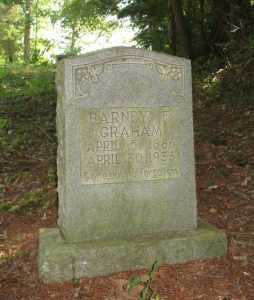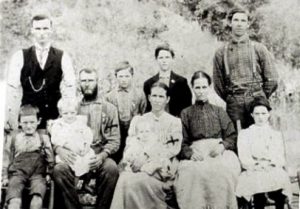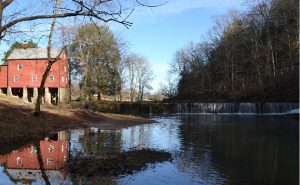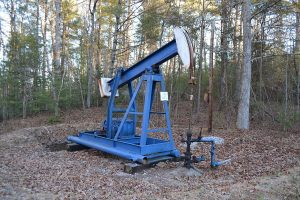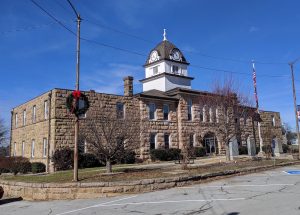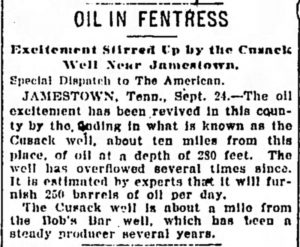
This overgrown cemetery is about all that’s left of Wilder, a coal mining community in Fentress County that once made national news.

A photograph taken in Wilder, in the early 1940s
PHOTO: Franklin Roosevelt Presidential Library and Museum
Fentress County was the site of one of the most infamous strike-related murders in American history.
In July 1932 workers at the Fentress Coal and Coke Co. mine in Wilder went on strike to protest low pay and unsafe working conditions. The company hired replacement workers (derogatorily referred to as scabs) to work the mines. But during the next few months several of the bridges used to haul coal from the mines were damaged or destroyed, and there were many violent incidents against strikers and scabs.
Then, on April 30, 1933, company guards shot and killed union president Barney Graham in the streets of Wilder (a company town owned by Fentress Coal and Coke). No one was ever convicted of Graham’s murder.
A famous labor ballad entitled “The Ballad of Barney Graham” was written about the incident. Many believe his death galvanized organized labor in the South, and the incident convinced Myles Horton, the organizer of Grundy County’s Highlander Folk School, to step up efforts to organize workers in that part of the state. “If I hadn’t already been a radical, that would have made me a radical right then,” he said.
The town of Wilder is entirely abandoned now. The only signs that there was ever a town there are bits and pieces left behind by the people who lived here during coal mining days, buried under trees that have grown where all the houses used to be.
Fentress County was also the home of Alvin York, the most famous American World War I hero.
York was drafted into the U. S. Army in 1917. The next year, in the Battle of the Argonne Forest, he is said to have killed 25 Germans and captured 132 prisoners almost single handedly.
When he came home from the war, parades were held in his honor all over the country.
Because he was so famous, York was offered large amounts of money to make speeches or to endorse products. However he refused to accept money for speaking about the war or writing about it, because he thought it was wrong to profit from what he had done.
For our virtual tour of the Alvin York State Historic Park, click here.
Here is something you probably didn’t know about Fentress County: It is one of Tennessee’s top counties when it comes to oil and natural gas production (other top counties including Overton, Pickett and others on the Cumberland Plateau). In fact, people in Fentress County have been digging for oil since the late 1800s, as you can see in the article on the right.
Here’s the Fentress County Courthouse.
